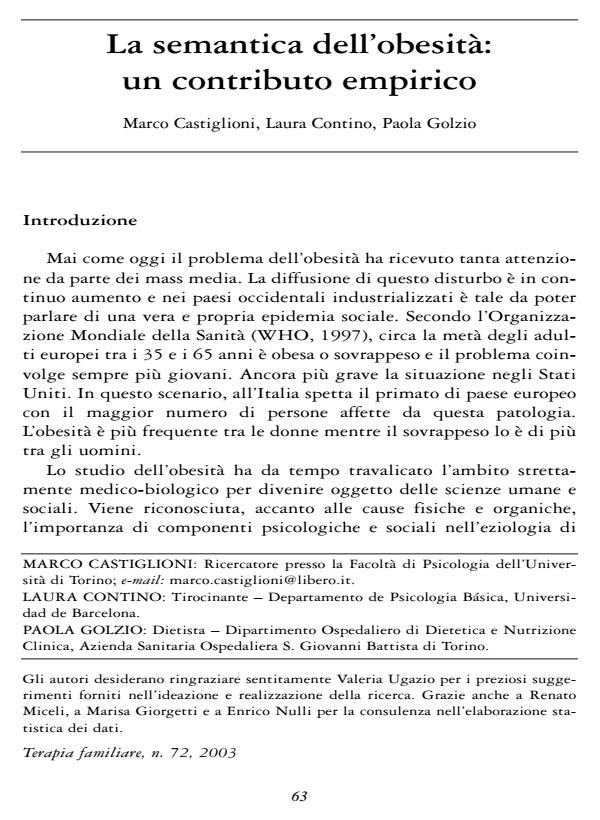La semantica dell'obesità: un contributo empirico
Titolo Rivista TERAPIA FAMILIARE
Autori/Curatori Marco Castiglioni, Laura Contino, Paola Golzio
Anno di pubblicazione 2003 Fascicolo 2003/72 Lingua Italiano
Numero pagine 21 P. Dimensione file 111 KB
DOI
Il DOI è il codice a barre della proprietà intellettuale: per saperne di più
clicca qui
Qui sotto puoi vedere in anteprima la prima pagina di questo articolo.
Se questo articolo ti interessa, lo puoi acquistare (e scaricare in formato pdf) seguendo le facili indicazioni per acquistare il download credit. Acquista Download Credits per scaricare questo Articolo in formato PDF

FrancoAngeli è membro della Publishers International Linking Association, Inc (PILA)associazione indipendente e non profit per facilitare (attraverso i servizi tecnologici implementati da CrossRef.org) l’accesso degli studiosi ai contenuti digitali nelle pubblicazioni professionali e scientifiche
This study aims to test empirically the theory that obesity is psychologically linked to the semantics of power (Ugazio, 1998). The hypothesis was that personal meanings of winner/loser and associated meanings are pre-eminent for obese people.The Repertory Grid Test (Kelly, 1955) was applied to two groups of young subjects, Group 1 obese/overweight and Group 2 of normal weight, to elicit their most significant personal constructs. The constructs were grouped in semantic categories and the data compared using Student’s t test. Group 1’s constructs were found to be significantly more connected to the semantics of power than Group 2’s. The empirical data seems to confirm the hypothesis. The results are discussed in the light of methodological problems encountered.;
Marco Castiglioni, Laura Contino, Paola Golzio, La semantica dell'obesità: un contributo empirico in "TERAPIA FAMILIARE" 72/2003, pp , DOI: